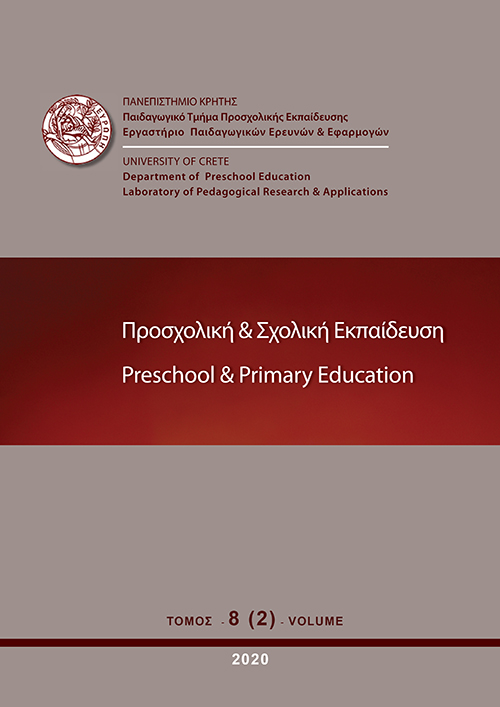Let them shine: insights from an outdoor education initiative for primary school students about an olive tree collection

Abstract
Nowadays, experiential learning and outdoor education are increasingly relevant due to phenomena of ‘extinction of experience’ (Pyle, 1993), ’plant blindness’ (Wandersee & Schussler, 2001) and ‘nature deficit childhoods’ (Louv, 2005). This paper revisits experiential learning and outdoor education concepts and some of their development history for European and North American contexts. It highlights plant biodiversity as an important issue for outdoor education due to current risks of biodiversity loss/erosion within agriculture (Linos, et al., 2014; Mousavi et al., 2017).
It describes an experiential learning initiative held in Portugal, in 2019, at an olive tree collection (Olea europaea L.) planted for a research project during the 1980s-1990s.
The initiative was structured with outdoor visits as a complement to classroom learning. It engaged five teachers and 117 students, aged 8-9 years. Data from students and teachers questionnaires results are evaluated as a way to counteract the above phenomena and to benefit children training. Existing research indicates the role of provision of supportive and stimulating environmental conditions during childhood to strengthen individual competencies to make decisions able to accelerate transition for more sustainable societies (U.N., 2019). This paper results articulates with existing research and can be useful to inform effective outdoor programme design.
Article Details
- How to Cite
-
Lima, M. A. A. (2020). Let them shine: insights from an outdoor education initiative for primary school students about an olive tree collection. Preschool and Primary Education, 8(2), 130–143. https://doi.org/10.12681/ppej.21988
- Issue
- Vol. 8 No. 2 (2020)
- Section
- Articles

This work is licensed under a Creative Commons Attribution-NonCommercial-ShareAlike 4.0 International License.
Authors who publish with this journal agree to the following terms:
- Authors retain copyright and grant the journal right of first publication with the work simultaneously licensed under a Creative Commons Attribution Non-Commercial License that allows others to share the work with an acknowledgement of the work's authorship and initial publication in this journal.
- Authors are able to enter into separate, additional contractual arrangements for the non-exclusive distribution of the journal's published version of the work (e.g. post it to an institutional repository or publish it in a book), with an acknowledgement of its initial publication in this journal.
- Authors are permitted and encouraged to post their work online (preferably in institutional repositories or on their website) prior to and during the submission process, as it can lead to productive exchanges, as well as earlier and greater citation of published work (See The Effect of Open Access).


